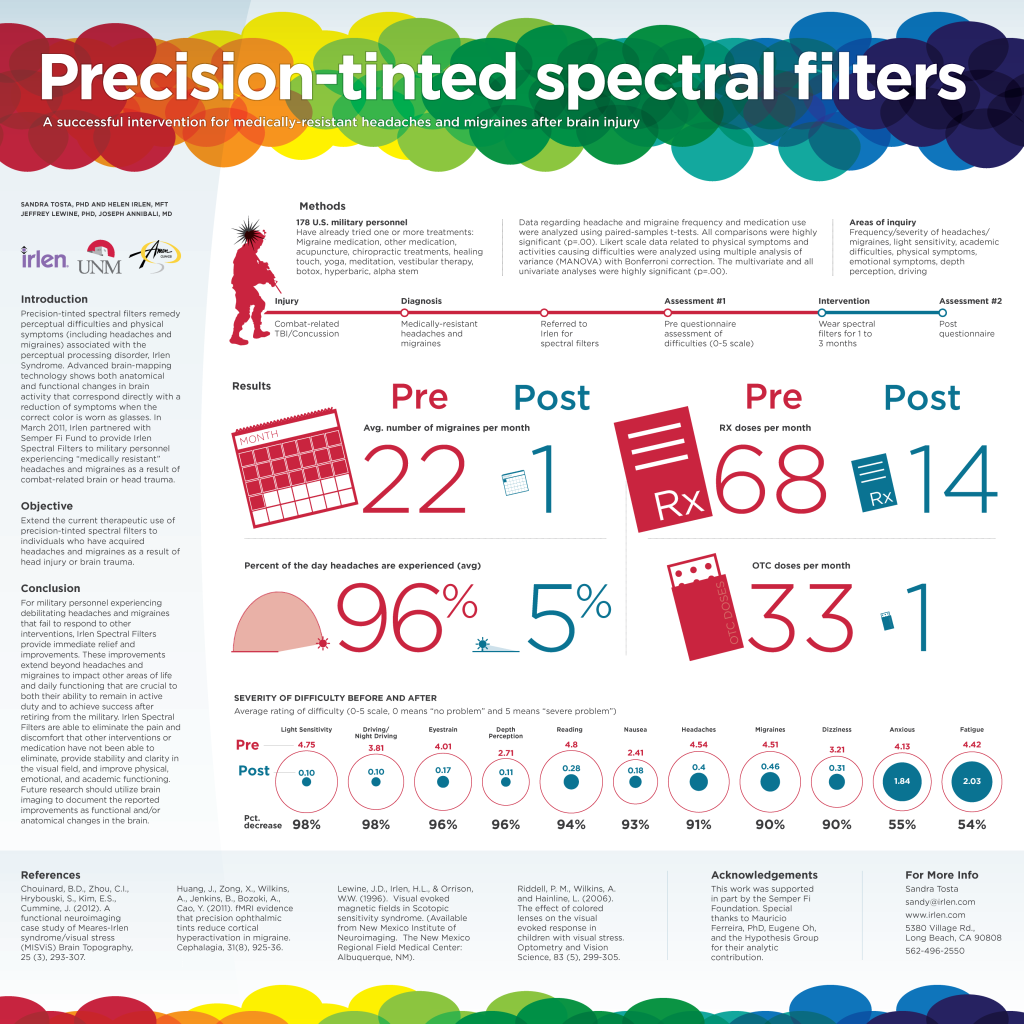Military and Veterans
Servicemen and woman who have experienced concussions, traumatic brain injury, and repeated blast exposures may be helped by Irlen Spectral Filters if they experience any of the following:
- Extreme light sensitivity (i.e., sensitivity to bright lights, sunlight, or fluorescent lights)
- Chronic headaches or migraines that are not relieved by other courses of treatment and do not respond to medication
- Changes in vision or perception that are not corrected with optometric glasses
- Difficulty with reading or distortions on the printed page
- Changes in depth perception
In 2012, the American Academy of Ophthalmology reported:
“In a study conducted at the Veterans Affairs Medical Center, in Washington, D.C., researchers found that vision problems in veterans with mild TBI are much more common and persistent than previously recognized, with 67 percent of the 31 patients studied reporting chronic vision disorders. Though none of the affected veterans had suffered direct eye wounds, their vision continued to be impaired more than a year after they endured the injuries that caused their TBI. The vision problems most frequently reported by the veterans in the study were convergence, which is the ability to focus both eyes simultaneously in order to read or see other nearby objects, and sensitivity to light. Veterans’ ability to readjust their focus when moving their gaze between far and near objects, known as accommodation, was also reduced. Other complaints included double vision and “floaters,” which are spots or spidery shapes that seem to move across the visual field.”
Since 2011, Irlen has partnered with Semper Fi Fund to provide Irlen Spectral Filters to military personnel experiencing “medically resistant” headaches and migraines as a result of combat-related brain or head trauma. A study of 178 of these servicemen and woman showed dramatic and immediate improvements of these headaches and migraines, as well as improvement in a variety of other areas, including reading, night driving, eye-strain, and dizziness. Results from this study were presented at the World Congress on Brain Injury held in San Francisco, CA in March 2014.
CLICK LINK TO ENLARGE IMAGE (headache-poster)



